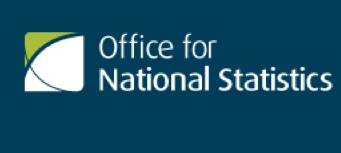Inflation has again turned negative, falling to -0.1% in September, it was revealed this morning.
The latest Consumer Prices Index report has been published by the Office for National Statistics.
The ONS report stated: “The Consumer Prices Index fell by 0.1% in the year to September 2015, compared to no change (0.0%) in the year to August 2015.
“A smaller than usual rise in clothing prices and falling motor fuel prices were the main contributors to the fall in the rate. The rate of inflation has been at or around 0.0% for most of 2015.
CPIH (not a National Statistic) grew by 0.2% in the year to September 2015, down from 0.3% in August 2015.
Head of CPI, Richard Campbell said: “Though CPI has turned very slightly negative this month, the bigger picture is of a broadly flat inflation rate since the beginning of the year.”
Nancy Curtin, CIO at Close Brothers Asset Management, said: “This shouldn’t be cause for concern. Today’s result is simply evidence of how the UK economy is delivering at the moment – not exactly a steam train bounding ahead at full speed, but certainly enough to keep things moving along at a steady enough pace.
“Yes, the inflation outlook is a little soft, but wage growth is increasing and retail consumption is on the up, which will help to drive things forward over the next few months.
“Though the effect of the oil price falls is slowly fading, this and global disinflationary pressures are still threading through. All in all, though, today isn’t damaging, and the Bank will simply see this is as confirmation of its decision to hold off a rate hike until domestic price pressure begins to rise.”
Ben Brettell, a senior economist at Hargreaves Lansdown, said:
“The rate of consumer price inflation has now been zero (or close enough to make no difference) since February. It’s expected to climb in the coming months as the big drop in fuel prices falls out of the year-on-year calculation, but core inflation, which strips out volatile components like food and energy, also remains weak at 1.0%.
“This offers little suggestion that underlying inflationary pressures are building in the UK economy, despite continuing strength in wage growth. Figures due out tomorrow are expected to show pay growing at 3.1%.
“Downside risks to the UK economy are still numerous. Global concerns, especially surrounding China and other emerging markets, have been well documented, but there are also signs the domestic economy could be faltering. “Last week’s PMI survey for the services sector, which accounts for around three-quarters of economic output, showed business activity growing at its slowest pace for more than two years.
“While the impact of rising wages remains notable by its absence in the inflation figures, I expect the Bank of England to focus on the risks and exercise caution on interest rates. I see them remaining at 0.5% into the second half of next year, and quite possibly even longer than that.”
Peter Cameron, associate fund manager at EdenTree Investment Management, said: “Inflation is back in negative territory again and it’s very unlikely that we’ll see the Bank of England raise interest rates this side of Christmas.
“Although wage pressures are emerging and the impact of the falling oil price will soon start to drop out of the numbers, a rate hike would have a deflationary effect by pushing up Sterling.
“At a time when the ECB is signalling it is ready to expand QE and the Fed is likely to delay its own rate lift-off into 2016, the Bank will be fearful of allowing Sterling to appreciate too much.”

